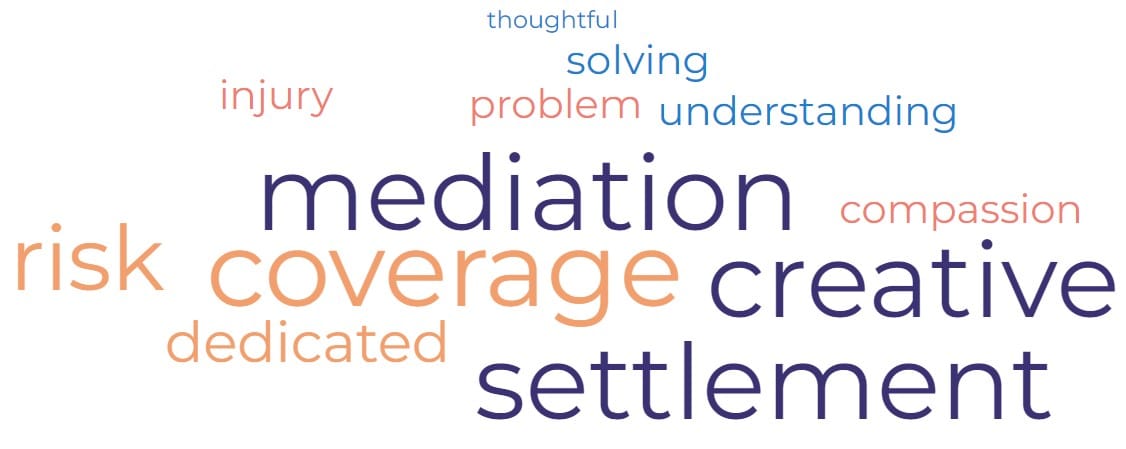Creative Mediation Solutions for Tough Cases and Clients
Jeff Carey has nearly three decades of litigation experience and advanced training in facilitative, evaluative, and transformative mediation practices. He combines his conflict resolutions skills, litigation experience, and career track record of treating parties in conflict with empathy and understanding to settle the case at hand.
If your risk can be managed efficiently, it should be.
If your case can be settled fairly, it should be.
 Since 1998, Jeff has litigated a broad range of cases including insurance coverage disputes, auto accidents, premises liability claims, medical malpractice, dental malpractice, legal malpractice, products liability, mass torts, business dissolutions, trade secrets, non-competition, professional E&O defense, employment discrimination, management-labor disputes, contract disputes, and securities litigation. He has lectured nationally with NBI on claims negotiation, bad faith insurance litigation, wrongful death litigation, and automobile accident litigation.
Since 1998, Jeff has litigated a broad range of cases including insurance coverage disputes, auto accidents, premises liability claims, medical malpractice, dental malpractice, legal malpractice, products liability, mass torts, business dissolutions, trade secrets, non-competition, professional E&O defense, employment discrimination, management-labor disputes, contract disputes, and securities litigation. He has lectured nationally with NBI on claims negotiation, bad faith insurance litigation, wrongful death litigation, and automobile accident litigation.
These are some mediation lessons Jeff learned over the decades and hundreds of mediations he has been involved with as an attorney or mediator:
- A mediation is not a settlement conference. If the parties believe the mediator is only exchanging numbers for them, they don’t need you. Though mediation is voluntary and coercion is inappropriate, the mediator should use their skills and experience to actively create an environment where perspectives can shift and settlement can occur.
- The parties hired their lawyer to prosecute or defend their case. Settlement is most likely, though, when the parties have general agreement on the facts and likely impact at trial. The mediation process should, within the bounds of confidentiality, help to make sure that everyone has a clear-eyed view of the case.
- Some people need a chance to tell their story and feel that they have been heard. The mediator should always ensure that the litigants know you are listening.
- Always read the parties’ submissions far enough in advance to ask questions before mediation if necessary. When it becomes clear that the mediator did not read your submissions, faith in the process is eroded.
- If the mediator has or exhibits bias for one party over the other, they are not serving either party.
- When a mediator has not worked with an attorney before, a phone conference in advance of mediation is a welcome gesture. Different attorneys want different help from their mediators.
- Different clients need different levels of direct engagement with the mediator. Jeff excels at helping attorneys with clients who have unrealistic expectations about trial.
- When the parties are making progress, have patience.
- Brackets are useful tools but are often employed far too early in the mediation process to be effective.
- If a case does not settle but is not hopeless, provide follow up at regular intervals for free.
- When a case is settled, get the essential terms in writing and make sure the litigants sign the memorandum of settlement.
- Where there is not a good reason to conduct a mediation in-person, Zoom is effective. Studies have shown that Zoom mediations settle at a rate equal to traditional mediation in conference rooms. [1] [2] [3]
To book a mediation, please contact us at (816) 246-9445.
Essays on Mediation
Mediating Grief, Jeffrey Carey (September 18, 2024)
Narrative Consciousness, Reflective Re-Framing, and the Decision Maker: An Examination of the Importance of Story in Understanding Jury Risk and Resolving Conflict, Jeffrey Carey (October 3, 2024)